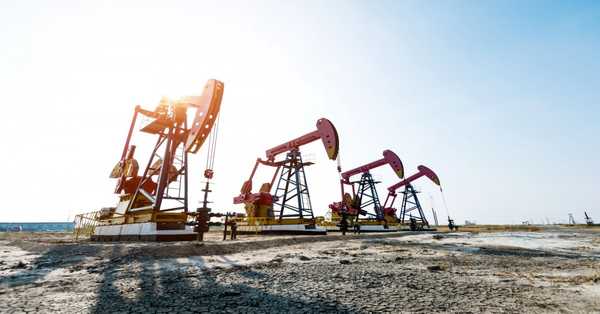Earlier this week, Saudi Arabia, the world’s biggest oil exporter, said it would cut output by an additional 1 million barrels per day in February and March
Brent crude climbed 39 cents, or 0.7%, to $54.77 a barrel by 0757 GMT, after touching $54.92, the highest since Feb. 26. US West Texas Intermediate (WTI) gained 33 cents, or 0.7%, to $51.16. The contract also touched its highest since Feb. 25 at $51.34 earlier in the session.
Oil prices on Friday hit 11-month highs and were on track for a strong weekly gain as a rally in global equities fed risk appetite and stoked bullish sentiment following Saudi Arabia’s pledge to cut output.
Brent crude climbed 39 cents, or 0.7%, to $54.77 a barrel by 0757 GMT, after touching $54.92, the highest since Feb. 26.
US West Texas Intermediate (WTI) gained 33 cents, or 0.7%, to $51.16. The contract also touched its highest since Feb. 25 at $51.34 earlier in the session.
Both benchmarks are on track for weekly gains of more than 5%.
“Saudi’s decision to make voluntary cuts to its output continued to provide support,” said Hiroyuki Kikukawa, general manager of research at Nissan Securities.
“Strong global equities, backed by excessive liquidity, also prompted fresh buying in oil,” he added, but said oil and stock markets could see a correction soon as their rallies do not reflect fuel demand and the global economy.
Earlier this week, Saudi Arabia, the world’s biggest oil exporter, said it would cut output by an additional 1 million barrels per day (bpd) in February and March.
On Thursday, seven North Sea crude cargoes were bought and sold in the trading window operated by Platts, a record amount that trade sources said may reflect tighter supply after the surprise cut.
UBS raised its forecast for Brent to $60 per barrel by mid-year, following Saudi Arabia’s unilateral cut and expectations of a second quarter demand recovery as coronavirus vaccine rollouts should revive travel.
Asian shares vaulted to record highs on Friday and Japan’s Nikkei hit a three-decade peak as investors looked beyond rising coronavirus cases and political unrest in the United States to a hoped-for economic recovery later in the year.
“Oil markets are expected to stay in a bullish tone toward February on the back of Saudi’s surprise promise to cut production,” said Kazuhiko Saito, chief analyst at commodities broker Fujitomi Co.
“But concerns over slower demand in gasoline and other fuels in the United States and other parts of the world due to wider restrictions to contain spreading Covid-19 pandemic may limit gains.”
The pandemic claimed its highest US death toll yet, killing more than 4,000 people in a single day, while China reported the biggest rise in daily cases in more than five months and Japan may extend a state of emergency beyond the greater Tokyo region.
